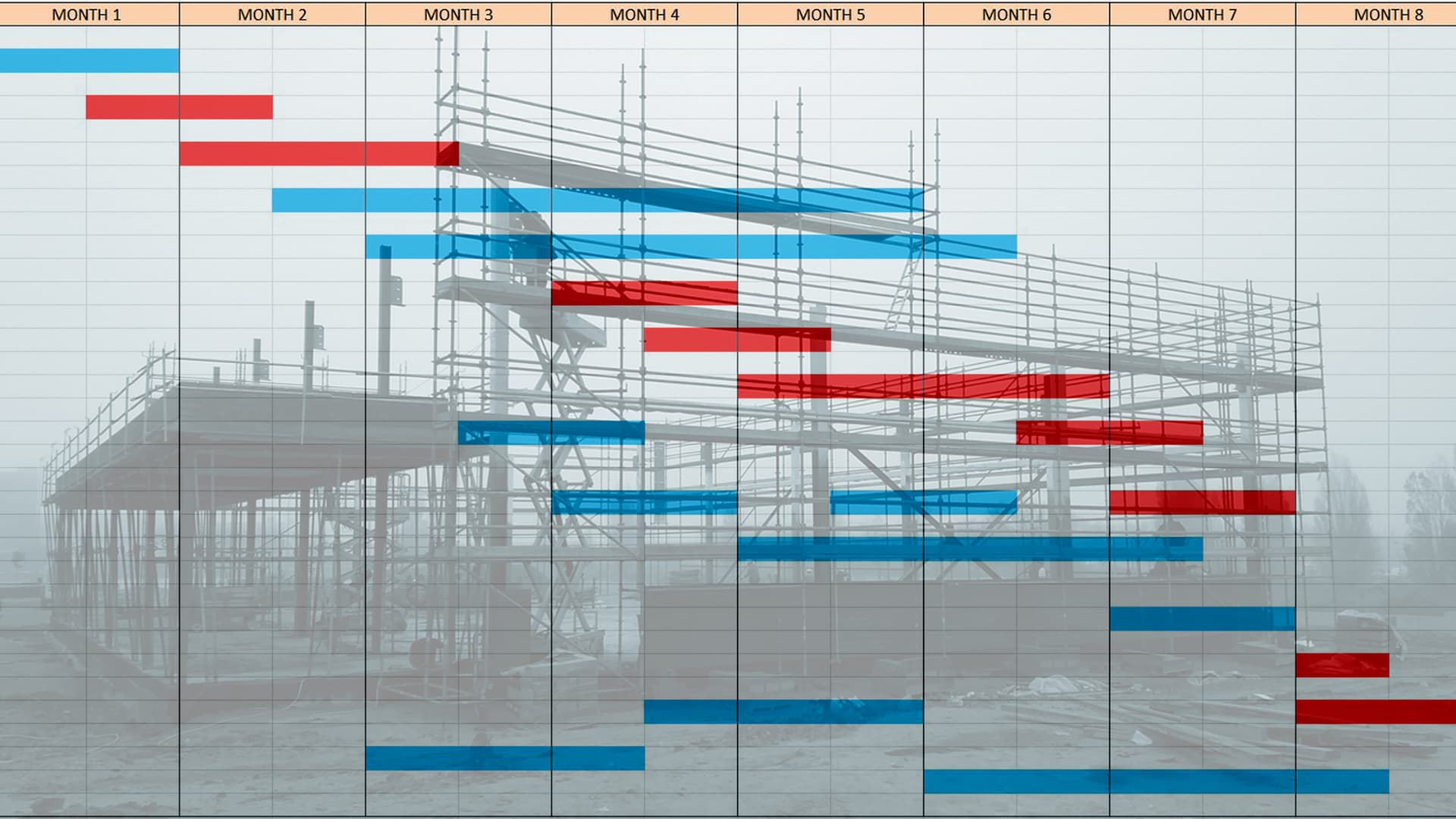Blogs
The benefits of a master planning for your construction project

A successful construction project requires careful planning and coordination of many different activities. To make this process easier and to provide the right support, many construction project managers use a master planning (MP). Here you will find more information about what an MP exactly entails and what the difference is between an operational planning (OP) and a master planning. You will also discover here what the advantages are of using an MP in your construction project.
What is a Master Planning?
A master planning is an extensive strategy that outlines the strategic vision and overarching plan for a construction project. It serves as a guiding framework for all phases and activities throughout the entire project lifecycle.
Developing an MP demands thorough analysis and planning. It encompasses feasibility studies, evaluating the project’s technical and economic viability. Identifying potential risks and developing suitable control measures is also integral to the preparation. Furthermore, during the master planning process, you explore alternative solutions, selecting the best approach to achieve the set objectives.
Additionally, an MP provides a detailed description of the desired end results, including functional and aesthetic objectives. It defines the project’s scope, identifies key milestones, and determines the sequence in which specific activities must occur.
Moreover, it involves the coordination of various disciplines, such as architecture, construction, electrical engineering, mechanics, and landscape architecture. This ensures seamless integration of all aspects.
The Distinction Between Operational Planning (OP) and Master Planning (MP)
Often, operational planning and master planning are conflated, yet while both are crucial in a project, they bear distinct differences.
Operational Planning
OP centers on daily operational activities and short-term goals and tasks. The operational plan emphasizes specific details and execution aspects relevant to a given phase. The primary aim of OP is to achieve efficiency and track the project during execution.
In complex construction projects involving multiple teams and disciplines, operational planning provides a structured approach to coordinating tasks. It ensures efficient execution and aids in optimizing resource utilization. Lastly, OP assists in minimizing delays and upholding work quality.
Master Planning
An MP focuses on the project’s overarching vision and strategic plan, extending beyond short-term activities. It encompasses the entire project duration and all its phases. An MP underscores coordination among different disciplines and stakeholders. This type of planning accounts for intricate activity relationships and dependencies. Generally, an MP furnishes a high-level framework for decision-making and risk management, with a broader scope compared to OP.
Both planning types are valuable throughout a construction project. While OP is essential for daily execution, it must remain aligned with the overarching master plan (MP). The MP provides the strategic context and guidelines, while OP addresses the tangible actions and tasks necessary to attain the goals. By harmonizing and integrating both plans, you enhance your ability to execute your construction project efficiently and achieve your objectives.
Benefits of Employing a Master Planning in a Project
Creating a comprehensive MP yields numerous benefits. It offers improved oversight, enhanced coordination, greater efficiency, and optimal risk management. It also serves as a stakeholder management tool, providing effective time and cost control.
1. Overview and Coordination
An MP offers a holistic view of the entire construction project, ensuring all stakeholders comprehend objectives, scope, and interrelationships between activities. It aids in identifying and resolving potential bottlenecks and conflicts across various disciplines.
2. Efficiency
Using an MP enables more effective resource planning and allocation. It minimizes overlaps and prevents unnecessary delays or standstills. This results in better labor, material, and equipment utilization, potentially significantly reducing project costs.
3. Risk Management
An MP assists in identifying and managing potential risks throughout the project lifecycle. By identifying potential risks early, appropriate measures can be taken to mitigate or avoid them. It provides a framework to respond to unforeseen events and disruptions, making project progress management simpler and reducing the likelihood of surprises.
Read also: In five steps to better risk management of the construction project
4. Stakeholder Management
An MP acts as a communication tool among diverse stakeholders, such as clients, contractors, architects, craftsmen, and subcontractors. It offers a shared reference point, fostering mutual trust and understanding. This enhances collaboration and reduces the chances of misunderstandings or conflicts.
5. Time and Cost Control
With the assistance of an MP, realistic and achievable timelines can be established. It provides insights into the duration of each phase and identifies critical paths, enabling proactive response to potential delays and timely corrective action. This helps keep the project on track and prevent potential cost overruns.
In conclusion, employing an MP delivers multiple advantages, such as enhanced overview and coordination, efficiency, resource optimization, risk management, stakeholder management, and time and cost control. By implementing a robust master planning approach, you’ll be better equipped to successfully complete your construction project within defined goals and budgets.
Also read: Budget overruns in construction projects: points for attention and tips
Getting Started with Master Planning
Now that you understand the benefits of master planning, you’re ready to embark on creating one yourself. Begin by assembling your team and defining clear objectives. Conduct thorough analyses to identify potential threats and reduce risks. Break your project into different phases and outline the activities, milestones, dependencies, and timelines for each phase. A well-developed and effectively implemented MP will ultimately empower you to successfully conclude your construction project.
Would you like to discover how Simjo supports your construction project?
Simjo is project management software specially designed for project managers and project teams in the construction field. Find out how Simjo simplifies your work here and sign up for a trial.









